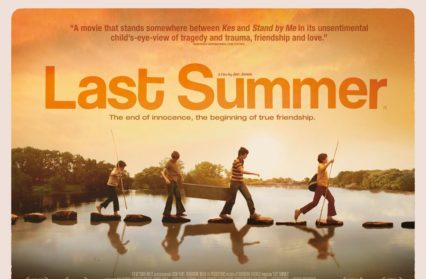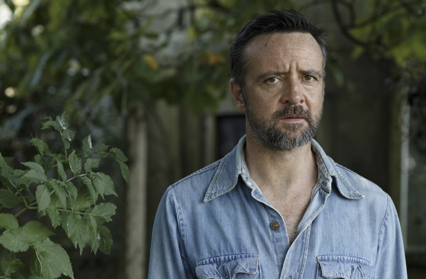Gary Raymond reviews the latest movie by Jon Jones, Last Summer, and argues a bad script and fumbled plot is the least of its problems.

That Last Summer, a new Welsh film by writer/director Jon Jones, and part-funded by Ffilm Cymru Wales, is a bad movie that should be obvious to anyone who sees it. As a country, we can publicly look for the positives in a film with an execrable script, a confused impetus, dodgy character motivations, and a standard of cinematic conception that would get you a middling grade at a half-decent film school – it’s what #TeamWales expects. But what we cannot do is ignore the misogyny of a film that has been written, produced, developed and premiered during the most radically political era of modern filmmaking. Last Summer makes Wales look bad. It makes Welsh cinema look bad. And at a time when film and TV are awash with strong inspiring female characters who are helping fight for #MeToo and consign a century of abusive sexism in a male-dominated industry to the history books, it makes Wales look backwards.
First, then, a brief look at why Jon Jones’ Last Summer fails as a construction.
Jon Jones’s script, an elegy to his own childhood in rural Wales in the 1970s, is a desolate dumping ground of stilted dialogue, forced colloquialisms, and garbled sentences. I lost count of the times an actor is forced to add an, isn’t it? at the end of a line, or a bach, or even a cariad. None of the actors seems convinced by these little tags, least of all Richard Harrington, who spends much of the movie wandering around like he’s been drugged, kidnapped and resuscitated on set just as someone shouts ACTION! Much of the time actors interact as if the real tension is with the script, not in it. One poor boy, Gruffydd Weston’s Iwan, is reduced to sounding like a Welsh Yoda for much of the film, with his weird inverted syntax. Where was the script editor? Or where was anybody with any knowledge of human interaction to say, this isn’t right? Dammit, Kasper Hauser could have written better dialogue.
But scripts are more than just dialogue.
Jon Jones’ Last Summer’s blueprint for drama fails on the simplest terms. Actors blurt outlines for which their characters seem clearly unprepared, motivations are all over the place, such as when Nia Roberts’ Sandra draws up some dividing lines between her son and the Morris boys. “They don’t want to see you,” she says. “You remind them of what happened.” What happened is the shocking and violent opening of the film, where the father of the Morris boys murders their mother (his wife) with a shotgun as she attempts to leave him for another man. The when is just hours before this exchange. The suggestion is that the boys are ready to move on and that Davy, Sandra’s son, is not helping. A peculiar bit of cod-psychology from Sandra that is given no setup and then is coldly left in that scene never to be mentioned again. Where does Sandra come up with this? Who knows.
The film is filled with these ill-thought-out moments to list them all. Characters mention over and over again that it is a sweltering summer, and yet there is not one bead of sweat in the entire film, not one damp shirt – indeed most of the adult characters have jackets or jumpers on throughout. A dog, Rex, is referred to consistently as a wild, uncontrollable fiend that will probably end up being destroyed, and yet the animal spends much of the movie utterly placid as if waiting for someone to throw a ball for him to fetch. Last Summer is crammed with things that just don’t work, that fail the world-building of the story, or undermine what the actors, bless ‘em all, are trying to do.
Kevin, the older Morris boy of 19, who was witness to the brutal murder-suicide of his parents at the farmhouse, seems to be the central focus of the film, although director Jones is confused about this and seems to place much of the emotional energy onto Davy and his obsessions with a dog and an owl (the symbolism of the owl is fudged – freedom? Wisdom? It’s never backed up in the development of the story. You get the feeling Jones has probably just seen Kes at some point). Kevin, to briefly map out his story arc, is apparently a bit of trouble – (he wears a leather jacket, isn’t it?) – and on witnessing his mother’s murder spends most of the film trying to then kill Harrington’s Dai, the man whom his mother was running to before she was shot in the back in the front garden. Along the way to his redemptive end, Kev threatens Dai’s life several times, vandalises his home, assaults a woman police officer (Kev’s ex-girlfriend, of course – insert eye-rolling emoji here), and her sergeant (several times), before being deemed worthy of becoming the legal guardian of his two orphaned younger brothers. And this all within a thirty-six hour period (approximately – the temporal and geographic spaces of Last Summer are not always easy to keep tabs on).

But films are tough to make, and bad ones are made all the time, with or without public investment. Just because there is a grant application process that should ensure certain standards, that doesn’t guarantee consistent returns of excellent. Ffilm Cymru Wales has been responsible for getting some very accomplished little movies to the screen in recent years, not least A Dark Song and The Machine. But that does not explain where the lack of scrutiny over Last Summer’s attitudes toward women has been. Frankly, anyone with a Twitter account could have warned the filmmakers the movie is at odds with important social movements, not to mention cinematic trends. Last Summer seems to be a movie that was funded and created in a bubble isolated entirely from any danger of feminist thinking.
Last Summer by Jon Jones is a film defined by its misogyny, not by its nostalgia, (or its anaemic Stand By Me reference points). The script and direction fail all of its characters, but the women portrayed in this film are failed in particularly ugly ways.
First up is the brutal murder of Catherine Ayers’ Anne Morris, treated as little more than a plot point, for the crime of trying to leave her husband. By the end of the film, the suggestion that she only had herself to blame is more than a suspicion, particularly when young Davy comforts the Morris boys by telling them that their dad was a good man, and “not a monster”, and shouldn’t be remembered that way just because he gunned down their mother in cold blood. The inference is the real tragedy here is that of their father, driven to a terrible act before turning the gun on himself in an act of nobility (after petting his dog with a warm, sad smile).
Add to that the pathetic display by Ruth Ollman’s WPC Yvonne Goodall, a female copper who is barely able to carry out any of her duties as a police officer, so overcome is she by tears and nervous hesitations as the traumatic events unfold. No suggestion here that a woman copper in the 70s would have had to be twice as tough as any man in order to get into the uniform in the first place. It’s as if Jane Tennison passed by everyone involved in this film. Female characters this weak and wan I thought were things of the distant past. They should be.
There is also a sickeningly inane social worker, and perhaps one of the great tragedies of the film by Jon Jones, the waste of the wonderful Nia Roberts as the Davies mother, Sandra, careering between hysterical disciplinarian and purveyor of Welsh mam clichés. And what about the three teenage girl bullies at the halfway house who literally describe themselves, with a sneer, as witches? How was there, at no point, a voice in this process raising red flags?
But it is the murder of Anne Morris in the Jon Jones film that sticks in the throat. It is a plot point in an age when violence against women must no longer be so frivolously employed. She is otherwise anonymous, barely referred to – even Harrington’s Dai is unable to muster an inspired reflection on their supposed love for each other. If this is a film about grief, the mourning is, at best, over lost innocence, because nobody gives a shit about the dead woman.
But, as I wrote at the beginning, nobody goes out to make bad art, and I have enormous sympathy when I watch something that I know just hasn’t quite come off and a vision has not been fully realised. But when Ffilm Cymru is injecting public money into projects like Jon Jones’ Last Summer, the question is not how is a bad film made, but why is funding resulting in such problematic attitudes to women on screen?
Last Summer by Jon Jones is available to watch now.


 Enjoyed this article? Support our writers directly by buying them a coffee and clicking this link.
Enjoyed this article? Support our writers directly by buying them a coffee and clicking this link.








